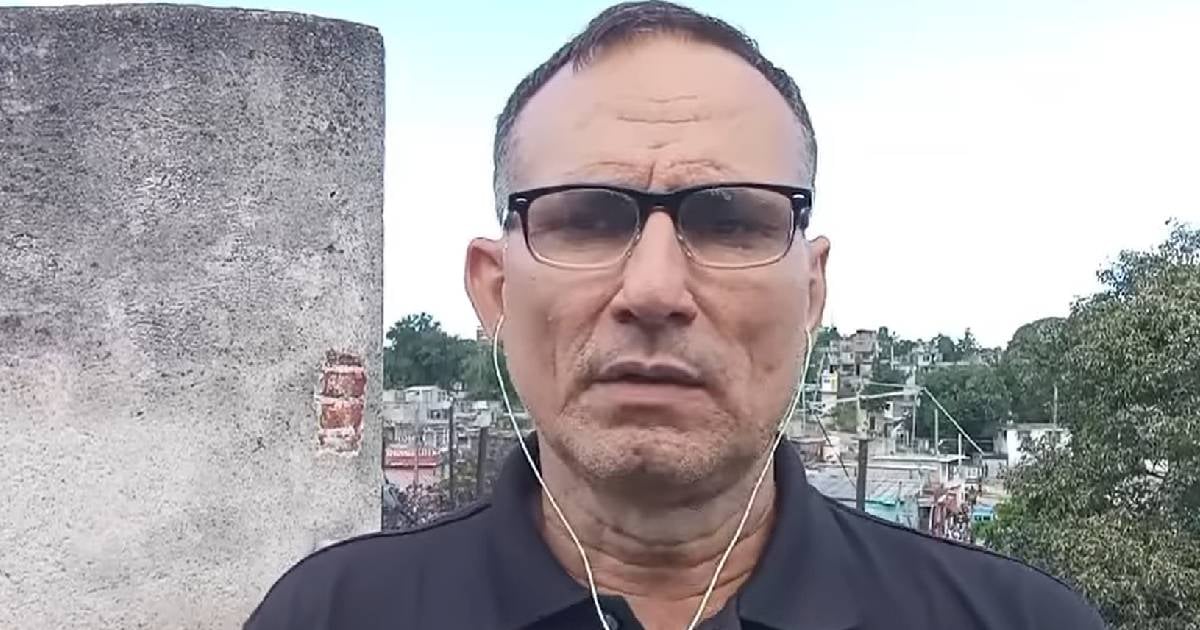
Related videos:
The Cuban regime has restricted Internet access for opposition leader José Daniel Ferrer, head of the Patriotic Union of Cuba (UNPACU), as reported by his wife Ana Belkis Ferrer.
The measure comes in a context where, following his release, Ferrer has continued his opposition work and has even refused summons from the Cuban police and State Security.
“The tyranny wants to isolate and cut off communication with them. Are they coming for them?”, says the message published on social media by the wife of the opposition leader.
The restriction of access to the Internet is a recurring strategy used by the Cuban government to silence critical voices and limit the spread of independent information.
José Daniel Ferrer was released on January 16, 2025 after spending three and a half years in prison.
His release occurred in the context of an agreement between the Cuban regime, the Vatican, and the United States, which included the gradual release of 553 political prisoners.
After his release, Ferrer sent a message of strength and hope to the Cubans, urging them to lose their fear because "the oppressor is increasingly scared."
He stated: "Do not be afraid to fight for a free, just, and prosperous Cuba, do not be afraid to work for a better future for all Cubans, so that we do not have to seek freedom and better living conditions in other lands."
However, Ferrer criticized the agreement that facilitated his release, stating that he feels no gratitude towards "any process or negotiation that ends up benefiting the dictatorship".
He expressed his concern that, although some political prisoners may be released, the regime could imprison more people in the future and use these releases as bargaining chips in international negotiations.
On January 27, 2025, he rejected a police summons in Santiago de Cuba, stating: "I am not going anywhere."
He reiterated his stance of not cooperating with what he qualifies as repressive strategies of the Cuban regime and assured: "For the freedom and well-being of my people, I would give even my life. I am not afraid of prison."
Additionally, Ferrer has raised concerns about a possible arrest and has reiterated his commitment to the freedom of Cuba.
In a message disseminated on January 28, 2025, he denounced that the regime's repressive forces could cut off his internet signal, raid his home, and imprison him due to his refusal to remain silent in the face of the abuses and crimes committed against the Cuban people.
Despite these threats, he stated: "I refuse to allow the regime to silence me. I refuse to be intimidated. I will continue to fight today, tomorrow, and always while I live, whether inside or outside of prisons, for freedom, democracy, respect for human rights, and well-being for my nation."
The international community has reacted to his release and current situation. The head of the United States Embassy in Havana, Mike Hammer, expressed his satisfaction with Ferrer's release and reiterated the call for freedom for all political prisoners in Cuba.
Despite his release, Ferrer continues to face challenges and remains committed to the fight for a free and democratic Cuba.
Frequently Asked Questions about José Daniel Ferrer and Repression in Cuba
Why doesn't José Daniel Ferrer have access to the Internet?
The Cuban regime has restricted José Daniel Ferrer's access to the Internet as part of a strategy to silence opponents and limit the spread of independent information on the island. This measure aims to disconnect and isolate Ferrer, who has been a critical voice against the Cuban government.
What position does José Daniel Ferrer hold after his release?
José Daniel Ferrer maintains his commitment to the fight for a free and democratic Cuba. Despite having been released, he rejects the imposed conditions and criticizes any negotiations that benefit the regime. He continues to be a prominent figure in the opposition, facing new challenges and threats of imprisonment.
How has the international community reacted to the situation of José Daniel Ferrer?
The international community, including countries like the United States and various human rights organizations, has expressed concern over the situation of Ferrer and other political prisoners in Cuba. The United States has condemned the persecution against Ferrer and has reiterated its commitment to the defense of human rights on the island.
What is the Patriotic Union of Cuba (UNPACU)?
The Patriotic Union of Cuba (UNPACU) is an opposition movement founded by José Daniel Ferrer in 2011, following his release from prison. UNPACU is dedicated to coordinating civic resistance and demanding democratic reforms, freedom of expression, and respect for human rights in Cuba. It is one of the most active opposition groups on the island.
Filed under: